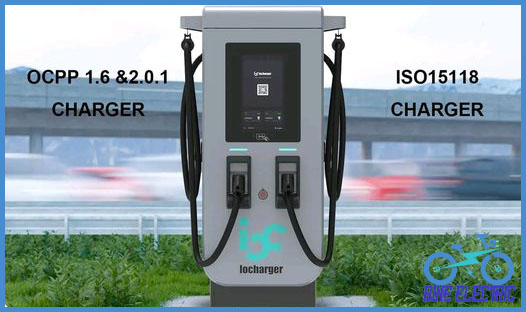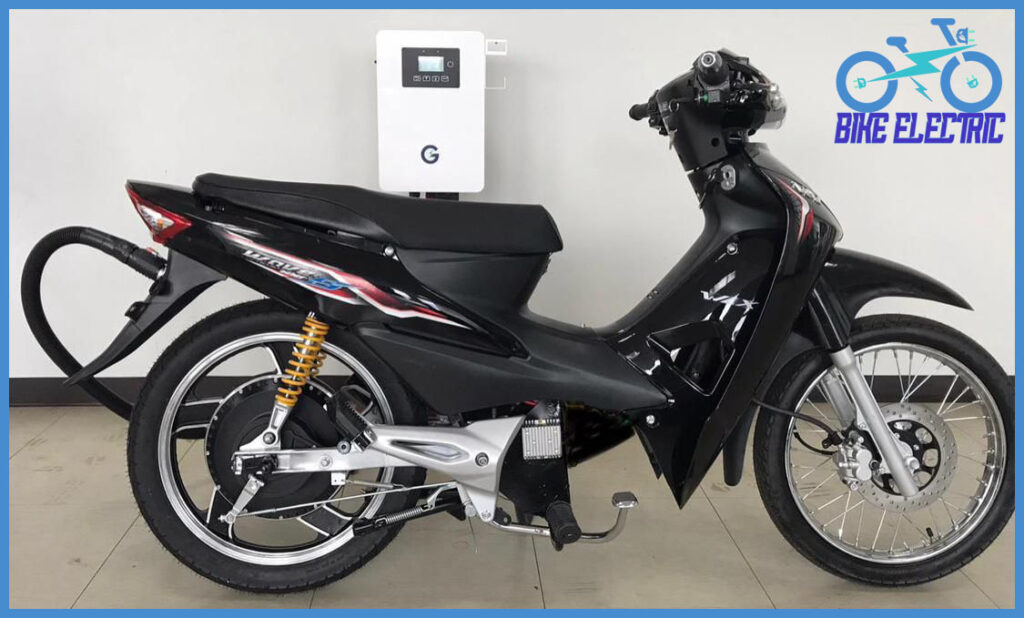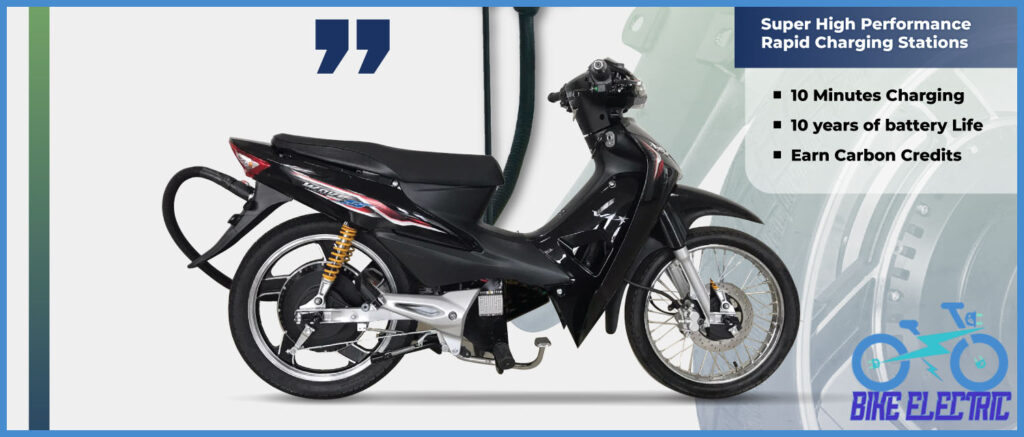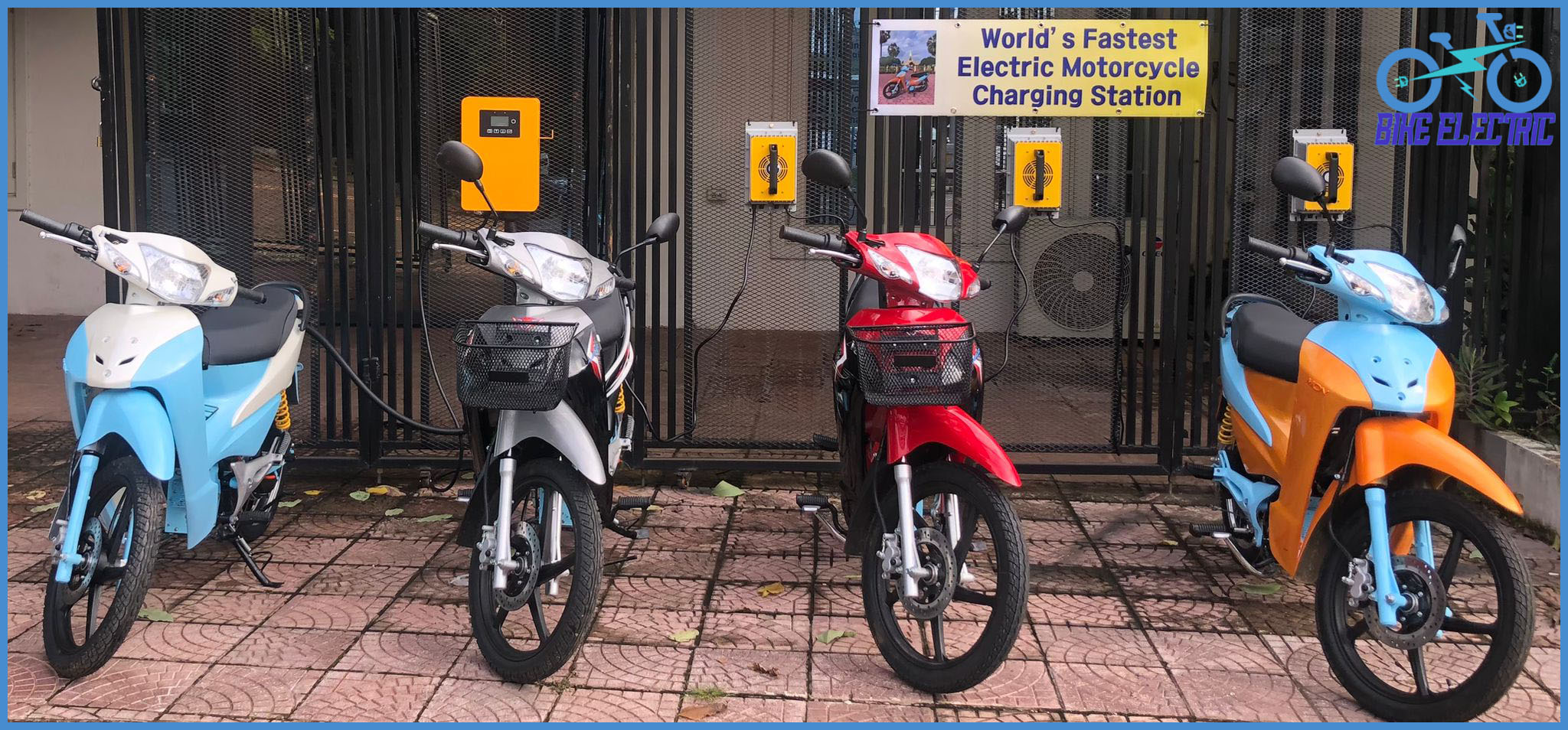Introduction to Charging Stations for Fleet of Electric Bikes
Overview of Electric Bike Fleets in Modern Mobility
Electric bike fleets are reshaping urban mobility and commercial transport. With cities prioritizing eco-friendly transportation, electric bikes provide a sustainable and flexible solution for businesses and city planners. Electric bike fleets, powered by a charging station for fleet of electric bikes, are widely used in sectors like delivery services, tourism, and corporate campuses. This solution supports an efficient, environmentally friendly way to navigate urban landscapes while reducing emissions and easing congestion.
Why Charging Stations are Vital for Fleet of Electric Bikes
To keep a fleet of electric bikes operational, a dedicated charging station for fleet of electric bikes is essential. Reliable charging infrastructure ensures electric bikes are consistently ready for use, reducing risks like delays, maintenance issues, and short fleet lifespan caused by inconsistent charging. A charging station optimizes fleet investment, enhancing efficiency, sustainability, and cost savings.

Purpose and Scope of This Guide
This guide examines the benefits of implementing a charging station for fleet of electric bikes and how it boosts operational efficiency, reduces expenses, and promotes sustainable practices. Each advantage will be outlined in detail to support informed decisions on setting up or improving charging solutions for electric bike fleets.
Benefit 1: Enhanced Efficiency and Fleet Management
Streamlining Daily Operations with Centralized Charging
A charging station for fleet of electric bikes simplifies fleet management by consolidating all charging at one location. Operators monitor each bike’s charge level easily, ensuring availability. Centralized charging reduces time spent managing individual chargers, creating a seamless workflow where bikes are always charged and ready.
Reducing Downtime and Maximizing Bike Availability
With a charging station for fleet of electric bikes, downtime is minimized, ensuring that every bike in the fleet remains powered and ready. Establishing a charging routine helps maintain availability for users, especially vital for industries with high demand, like food delivery. Reduced downtime directly impacts customer satisfaction and revenue.
Managing Charging Schedules for Optimal Fleet Usage
Charging stations with smart technology allow managers to set schedules based on usage patterns. For instance, bikes required for morning shifts can be prioritized for overnight charging, while those used for shorter trips can charge during peak hours. This scheduling approach ensures that the charging station for fleet of electric bikes meets the fleet’s needs while extending battery life.
Data Insights from Smart Charging Stations for Fleet Performance
Smart charging stations for fleet of electric bikes offer data insights into battery health, usage, and charging times, enabling data-driven decisions. Managers track key metrics to identify areas for improvement, anticipate maintenance, and optimize performance in real-time, making fleet operations more efficient and proactive.
Benefit 2: Cost Savings and Financial Advantages
Lowering Energy Costs with Efficient Charging Options
A charging station for fleet of electric bikes often includes energy-efficient options, such as scheduled or off-peak charging, to cut energy costs. Off-peak charging leverages lower electricity rates, making it affordable to charge multiple bikes while minimizing overall energy expenses.
Avoiding Expensive Battery Replacements with Proper Charging
Battery replacements are costly, but consistent and controlled charging can extend battery lifespan, reducing the need for frequent replacements. With a charging station for fleet of electric bikes, properly charged batteries last longer, saving on maintenance and replacement costs.
Reducing Maintenance Costs with a Consistent Power Supply
Frequent voltage fluctuations can damage battery health, leading to costly repairs and replacements. A charging station for fleet of electric bikes provides a stable power supply, minimizing battery strain and reducing maintenance costs over time.
Case Studies on Fleet Cost Reduction Through Charging Stations
Businesses implementing a charging station for fleet of electric bikes have documented notable savings, with some reporting up to 30% reductions in battery-related expenses. These case studies highlight the financial benefits of an organized charging solution and provide a model for other fleet operators.
Benefit 3: Eco-Friendly and Sustainable Operations
Reducing Carbon Footprint with a Green Charging Solution
While electric bikes are sustainable, a charging station for fleet of electric bikes powered by renewable energy further reduces the fleet’s carbon footprint. Utilizing solar or energy-efficient charging stations, companies contribute to environmental preservation and align with eco-friendly practices.
Supporting Corporate Sustainability Goals with Electric Fleets
Many organizations commit to sustainability by setting goals, such as reducing greenhouse gas emissions. Integrating a green charging station for fleet of electric bikes demonstrates a commitment to these goals, appealing to environmentally conscious customers and stakeholders.
Sustainable Charging Stations: Renewable Energy Options
Solar-powered or renewable energy-connected charging stations offer an alternative to traditional sources. A charging station for fleet of electric bikes using renewable energy reduces dependence on fossil fuels, aligning fleet operations with broader sustainability goals.
The Role of Charging Stations in Encouraging Eco-Travel
Reliable charging options encourage employees and customers to choose e-bikes over fuel-based vehicles. A dependable charging station for fleet of electric bikes promotes eco-friendly travel, supporting environmental objectives.
Benefit 4: Improved Battery Health and Longevity
Understanding Battery Lifespan in Electric Bikes
Battery health is essential for the longevity of an electric bike fleet. Batteries degrade with regular use, but a charging station for fleet of electric bikes supports controlled charging, extending battery lifespan and optimizing fleet durability.
Avoiding Overcharging and Extending Battery Life
Overcharging can damage batteries, reducing their life expectancy. Smart charging stations for fleet of electric bikes prevent overcharging by cutting off power once fully charged, reducing replacement frequency and maintaining performance.
Smart Charging Features for Optimal Battery Care
Advanced charging stations feature temperature regulation and controlled output, preventing battery overheating and damage. These smart-systems reduce the need for repairs and extend battery life.
Benefits of Consistent Charging on Fleet Durability
A charging station for fleet of electric bikes ensures consistent charging, maintains battery health, and supports fleet longevity. Reliable power improves performance, reduces maintenance, and extends service life for each Ebike.
Benefit 5: Enhanced Safety and Security
Protecting Bikes and Batteries with Secured Charging
Secure charging stations deter theft and vandalism, protecting bikes and batteries. Enclosed or built-in security measures at a charging station for fleet of electric bikes ensure peace of mind for fleet managers.
Fire Safety Measures and Compliance Standards for Charging Stations
High-quality charging stations for fleet of electric bikes adhere to safety standards with voltage regulation and temperature monitoring, minimizing overheating risk and safeguarding the fleet and surrounding areas.
Monitoring and Remote Access for Added Security
Remote monitoring features in a charging station for fleet of electric bikes allow managers to track charging status and respond to issues quickly, ensuring continuous charging and added security.
Minimizing Theft and Vandalism at Charging Points
A securely installed charging station for fleet of electric bikes reduces theft risk by keeping bikes in monitored locations. Placing stations in visible areas deters vandalism and enhances safety.
Choosing the Right Charging Station for Your Fleet

Types of Charging Stations: Standard vs. Fast Charging
Standard chargers are ideal for downtime, while fast chargers benefit high-demand fleets. Choosing the right charging station for fleet of electric bikes depends on fleet size and operational requirements.
Key Features to Look for in a Fleet Charging Station
Important features include durability, smart charging, temperature control, and analytics capabilities. These enhance efficiency and enable informed fleet management decisions.
Scalable Solutions for Growing Electric Bike Fleets
Select scalable charging station solutions for fleet of electric bikes that accommodate expansion. Modular stations allow fleet growth without a complete infrastructure overhaul.
Installation and Infrastructure Needs for Charging Stations
Planning the Location and Setup of Charging Points
Strategically place charging stations for fleet of electric bikes near bike storage or high-traffic areas for convenient daily access and minimal disruption.
Assessing Power Requirements and Electrical Infrastructure
Collaborate with professionals to evaluate power needs and ensure current infrastructure can support multiple chargers, preventing future electrical issues.
Tips for Easy Installation and Minimal Disruption
Choose flexible charging options that integrate easily, scheduling installation during off-peak hours to reduce downtime and operational disruption.
Managing and Monitoring Charging Stations for Optimal Performance
Using Software to Track and Schedule Charging Sessions
Fleet management software streamlines charging schedules, ensuring bikes are charged and ready when needed. These tools enhance coordination across large fleets.
Real-Time Monitoring for Fleet Managers
Real-time monitoring allows managers to view each bike’s charge level and station status, enabling swift responses and minimizing issues.
Understanding Usage Reports and Analytics
Usage reports provide insights into charging patterns, station efficiency, and areas for improvement, allowing data-driven decisions to optimize fleet performance.
Common Challenges with Charging Stations and How to Overcome Them

Addressing Common Technical Issues in Charging Infrastructure
Technical issues like power fluctuations are common. Regular maintenance and monitoring help prevent disruptions in charging station for fleet of electric bikes.
Handling Peak Charging Demands and Power Outages
Plan for peak demand by rotating schedules. Backup power solutions at a charging station for fleet of electric bikes ensure uninterrupted charging during outages.
Tips for Troubleshooting and Preventative Maintenance
Frequent inspections and maintenance of charging stations for fleet of electric bikes prevent long-term issues, reducing costs and ensuring smooth operations.
Future Trends in Charging Technology for Electric Bike Fleets
Innovations in Wireless Charging for Fleets
Wireless charging removes plug-in requirements, simplifying fleet management and expanding deployment options for charging station for fleet of electric bikes.
Solar-Powered Charging Stations: A Sustainable Future
Solar-powered stations provide an eco-friendly solution, reducing reliance on grid power and aligning with sustainable goals.
The Role of AI and IoT in Smart Charging Solutions
AI and IoT technology optimize energy use, predictive maintenance, and real-time monitoring, enhancing fleet efficiency.
Conclusion: Maximizing the Benefits of Charging Stations for Fleets
Steps to Implementing a Charging Station for Your Fleet
For successful implementation of a charging station for fleet of electric bikes, assess fleet size, usage needs, and infrastructure. Consider charging types standard or fast charging and determine the most strategic placement to minimize disruption. Conduct a power requirement evaluation to ensure compatibility with existing infrastructure. This planning enables a seamless transition, ensuring charging stations are ready to support your fleet effectively from day one.
Final Thoughts on the Value of Investing in a Charging Station
Investing in a charging station for fleet of electric bikes is an investment in the fleet’s efficiency, longevity, and sustainability. Proper charging infrastructure not only reduces operational costs but also enhances performance, safety, and security for both the bikes and the fleet operators. With the right setup, electric bike fleets are well-positioned to thrive, offering a cost-effective, eco-friendly transportation option that meets the demands of modern mobility.


1 thought on “Top 5 Benefits of a Charging Station for Fleet of Electric Bikes”